
A musical ensemble, also known as a music group or musical group, is a group of people who perform instrumental and/or vocal music, with the ensemble typically known by a distinct name. Some music ensembles consist solely of instrumentalists, such as the jazz quartet or the orchestra. Other music ensembles consist solely of singers, such as choirs and doo-wop groups. In both popular music and classical music, there are ensembles in which both instrumentalists and singers perform, such as the rock band or the Baroque chamber group for basso continuo and one or more singers. In classical music, trios or quartets either blend the sounds of musical instrument families or group instruments from the same instrument family, such as string ensembles or wind ensembles. Some ensembles blend the sounds of a variety of instrument families, such as the orchestra, which uses a string section, brass instruments, woodwinds, and percussion instruments, or the concert band, which uses brass, woodwinds, and percussion.

A bass instrument is a musical instrument that produces tones in the low-pitched range C2–C4. Basses belong to different families of instruments and can cover a wide range of musical roles. Since producing low pitches usually requires a long air column or string, the string and wind bass instruments are usually the largest instruments in their families or instrument classes.
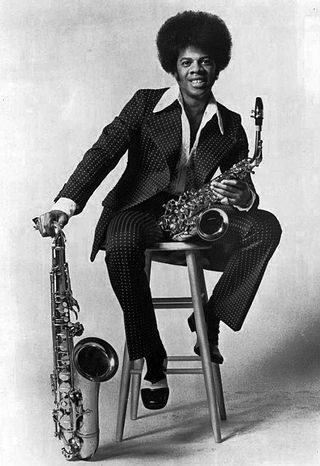
A multi-instrumentalist is a musician who plays two or more musical instruments, often but not exclusively at a professional level of proficiency.

The Elder Conservatorium of Music, also known as "The Con", is Australia's senior academy of music and is located in the centre of Adelaide, the capital of South Australia. It is named in honour of its benefactor, Sir Thomas Elder (1818–1897). Dating in its earliest form from 1883, it has a history in professional training for musical performance, musical composition, research in all fields of music, and music education. The Elder Conservatorium of Music and its forerunners have been parts of the University of Adelaide since the early 1880s. The current Director is Professor Anna Goldsworthy.

James Lloyd Morrison AM is an Australian jazz musician. Although his main instrument is trumpet, he has also performed on trombone, tuba, euphonium, flugelhorn, saxophone, clarinet, double bass, guitar, and piano. He is a composer, writing jazz charts for ensembles of various sizes and proficiency levels.
Walter Sinclair Hartley was an American composer of contemporary classical music.
Australian and New Zealand Cultural Arts Limited (ANZCA) is a privately funded not-for-profit institution that assesses music in Australia, New Zealand, Malaysia, Singapore, Indonesia and Thailand. The organisation was developed to be an alternative to the AMEB, allowing contemporary as well as the traditional classical syllabus. They focus on both Practical and Theoretical components.

Progress is a solo album recorded by original King Crimson drummer Michael Giles. It was recorded in 1978, but unreleased until 2002.

Tennis is the third studio album by British singer-songwriter Chris Rea, released in 1980. The album features two singles one of which includes a non-album B-side.

The Karol Lipiński Academy of Music is a university level school of music in Wrocław, Poland. It was established in November 1948 and is located on John Paul II Square.
The Associate in Music, Australia (AMusA) is a diploma awarded by examination to outstanding candidates in the fields of musical performance and music theory by the Australian Music Examinations Board (AMEB).
The Licentiate in Music, Australia (LMusA) is a diploma awarded by examination to outstanding candidates in the fields of musical performance, music theory and musicianship by the Australian Music Examinations Board (AMEB). Other music examination boards in Australia do have a Licentiate level diploma under other names, including Australian and New Zealand Cultural Arts (ANZCA) Music Examinations Licentiate Performer Diploma ANZCA (L.Dip.A).

Trinity College London (TCL) is an examination board based in London, United Kingdom which offers graded and diploma qualifications across a range of disciplines in the performing arts and English language learning and teaching. Trinity College London has examined over 850,000 candidates in more than 60 countries worldwide. It is a registered charity in England, Wales and Scotland, and its Patron is HRH The Duke of Kent.
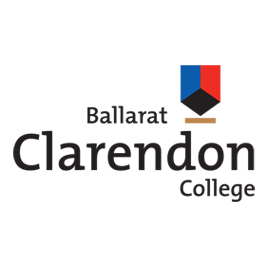
Ballarat Clarendon College is a private, co-educational, day and boarding school, located in Ballarat, Victoria, Australia.
Max Olding AM and Pamela Page were a distinguished Australian husband and wife team of duo-pianists. They performed separately in recitals and as concerto soloists, chamber music performers and accompanists both nationally and internationally, but were best known as a piano duo.
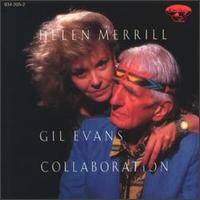
Collaboration is a 1987 studio album by Helen Merrill, arranged by Gil Evans. With the almost identical repertoire of recorded songs –though in another order– and following Evans' original scores it is a celebratory re-recording of their previous collaboration from 30 years ago for Merrill's album Dream of You, released in 1957 also on EmArcy. The one exception is the opener, "Summertime" from Porgy and Bess, that Evans recorded with Miles Davis in 1958, it replaces "You're Lucky to Me". Like Dream of YouCollaboration was recorded on three consecutive recording sessions each with a different line-up, one with woodwinds and trombone for most songs, featuring soprano saxophonist Steve Lacy on two tracks, one session with brass and another with a string section and woodwind.
The Fellowship in Music, Australia (FMusA) is the highest qualification attainable by the Australian Music Examinations Board (AMEB). It is an examinable qualification, founded in 1992, although for the years 2018 and 2019 it was awarded only on an honorary basis.
Jazzpunkensemblet is a Norwegian jazz ensemble orchestra led by the famous musicians Jon Eberson on guitar and Nils Petter Molvær on trumpet, and known for a clean style duel between two rhythm sections, and the two records Live At Rockefeller (1991) and Thirteen Rounds (1998), presenting compositions by Jon Eberson.
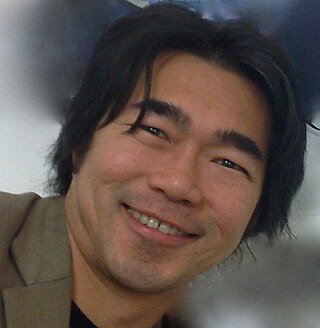
Sonny Chua was an Australian composer, pianist, and music educator. He taught at Melbourne High School and was director of music at Mac.Robertson Girls' High School.
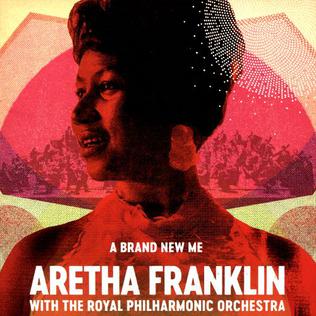
A Brand New Me is a compilation album by American recording artist Aretha Franklin. It was released on November 10, 2017, by Rhino Records and Atlantic Records. The album features archival vocal performances that Franklin recorded for Atlantic Records accompanied by new orchestral arrangements by the Royal Philharmonic Orchestra and newly recorded backing vocals, in addition to the original (archived) background vocal and instrumental accompaniments. Producer Nick Patrick said of the album: "There is a reason that Aretha Franklin is called the 'Queen of Soul.' There is nothing more exciting than that incredible voice taking you on an emotional roller coaster ride through her amazing repertoire of songs. To have the opportunity to work with that voice on this project has been the greatest honor and to hear a symphony orchestra wrapped around those performances is breathtaking." Franklin died in August 2018, nine months after the album's release.













